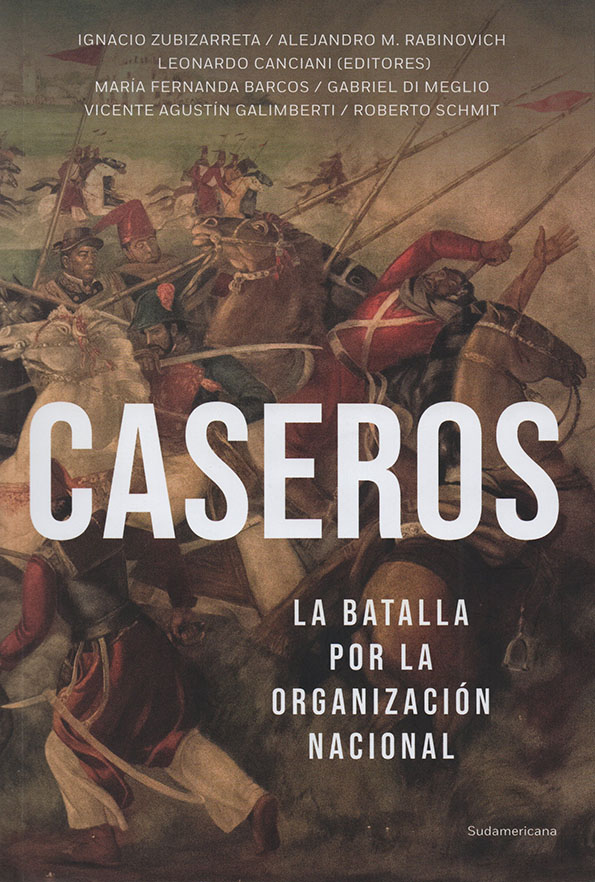Alejandro Zubizarreta, Alejandro M. Rabinovich, Leonardo Canciani
(Editors).
Editorial Sudamericana. Buenos Aires. 2022.
Quarto (22.8 x 15.6 cm), 281 pages. Publisher's illustrated binding.
What happened in the battle of Caseros between the forces loyal to the governor of Buenos Aires, Juan Manuel de Rosas, and the so-called Great Army under the command of General Justo José de Urquiza from Entre Ríos? Just under forty-five thousand combatants and barely half a thousand dead speak of a "strange" battle, when the cavalry and infantry charges were frontal and caused havoc. This book, as indicated by its publishers, intends to reveal the mystery in a new way, and not only investigates the mysteries of the battle itself; he ventures with solvency into that turning point in Argentine history, advancing beyond the military episode. Caseros was the fall of Rosas and the beginning of a process of national organization plagued with obstacles.
His reading enriches the diversity of views on those events; it is nourished by testimonial sources of the time, some revisited and others, novel, and also, it goes to contemporary texts and later historiographical interpretations. For those of us who are interested in the historical construction of the country, Caseros offers new approaches and motivates us to reflect on what happened. One hundred and seventy years after that crucial day, seven historians bring us an attractive and rigorous dissemination work.
The battle began long before that February 3, already in the erosion of the federal power embodied in Rosas, and in the construction of the international alliances of Urquiza, who formed an army sustained in the hope of defeating the strong man of Buenos Aires. . With more than twenty thousand combatants, he advanced towards the federal bastion without major setbacks, until finally, in the fields that today are populated by thousands of inhabitants distributed between the districts of Morón and Tres de Febrero, in just three hours the history of the country changed.
Where was the reckless ferocity of Rosas's soldiers, his commanders, and the Brigadier General himself? It is said that the repression due to the looting that followed the battle caused more deaths than that. And Urquiza must have delayed his triumphant entrance through the streets of Buenos Aires for several days.
Dilemmas from our history that emerge in this highly recommended book.
